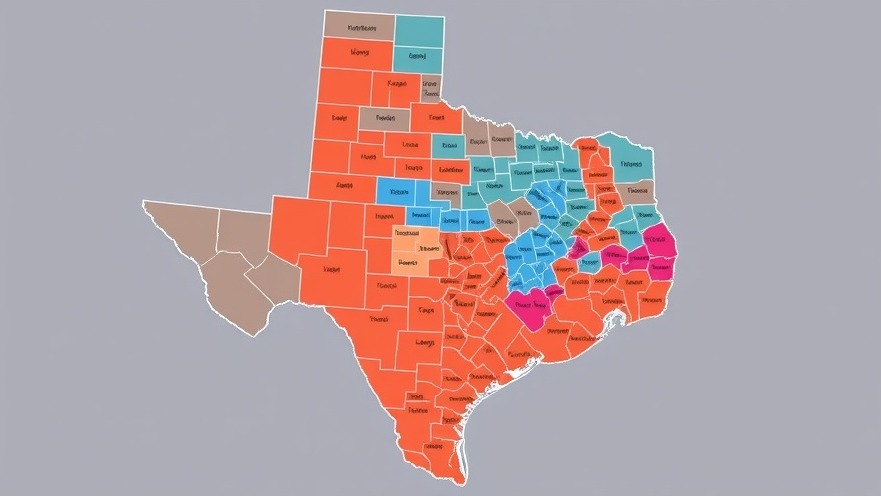
Texas Redistricting: A Legislative Tension Point
The ongoing battle over redistricting in Texas highlights deep political divides within the state. As Governor Greg Abbott, Lt. Governor Dan Patrick, and House Speaker Dustin Burrows prepare to end a special session due to a quorum break caused by House Democrats leaving Texas, the issue of how congressional districts are drawn becomes increasingly critical. Governor Abbott has made it clear that he is willing to immediately call lawmakers back if new districts aren’t established before the session concludes.
Political Maneuvering: What It Means for Texas Voters
According to Abbott, the potential for a new congressional map is designed to favor Republican candidates, with a goal of gaining additional GOP seats in the U.S. House. This move has incited fierce criticism from Democrats, who argue that it could dilute the voices of marginalized communities within those districts. The current political climate raises important questions about fair representation and the integrity of the democratic process in Texas.
Abandoning Responsibilities? The Quorum Break Explained
The ongoing standoff has left the Texas Legislature at a standstill, with bills covering pressing issues, such as responses to the flooding in Central Texas last July, in jeopardy. Democrats accuse Republicans of prioritizing redistricting over critical flood relief legislation, while Republicans assert that their counterparts are shirking their responsibilities by skipping town. This conflict reflects the larger political dichotomy in Texas, where partisan motivations often guide legislative priorities.
Possible Future Outcomes: What Lies Ahead for Texas
As Governor Abbott continues to hint at a potential new special session, observers are left wondering how this will impact the state's political landscape heading into the 2025 elections. The possibility of additional socially conservative items being added to the agenda suggests that Abbott is not only focused on redistricting but also on pushing his broader political agenda, which may have far-reaching consequences for Texas residents, including proposed changes to bail reform and bathroom laws.
The Implications of Ongoing Political Battles
The ongoing challenges in the Texas Legislature raise concerns about the effectiveness of governance and the ability of lawmakers to address critical state issues. As the debate continues, it becomes increasingly evident that the political maneuvering surrounding redistricting has significant implications for access to essential services and representation across Texas.
Engagement on All Fronts: A Call for Civic Participation
In light of the current political landscape in Texas, it is crucial for citizens to stay informed and engage with their local representatives. Whether through participating in town halls or voicing concerns via social media, Texan voters have the power to influence the legislative process. With significant issues at stake, from congressional representation to essential social policies, civic engagement is more important than ever.
Conclusion: The Road Ahead for Texas
The political tension surrounding redistricting in Texas continues to evolve, with Governor Abbott’s authority and the actions of state lawmakers shaping the trajectory of state politics. As this ongoing saga unfolds, the voice of the citizens remains essential in ensuring that their rights and needs are represented in the halls of government.
 Add Element
Add Element  Add Row
Add Row 



Write A Comment